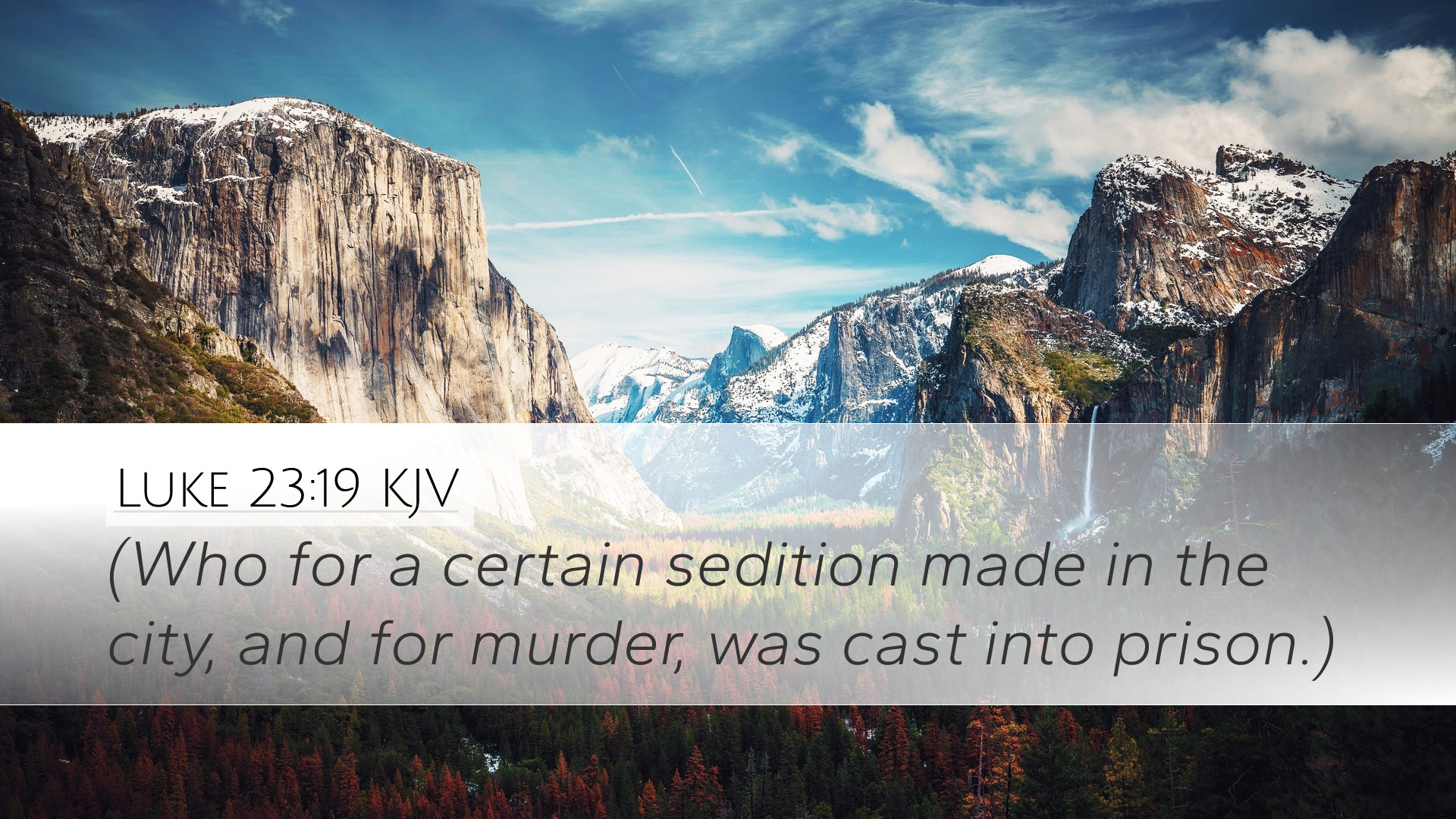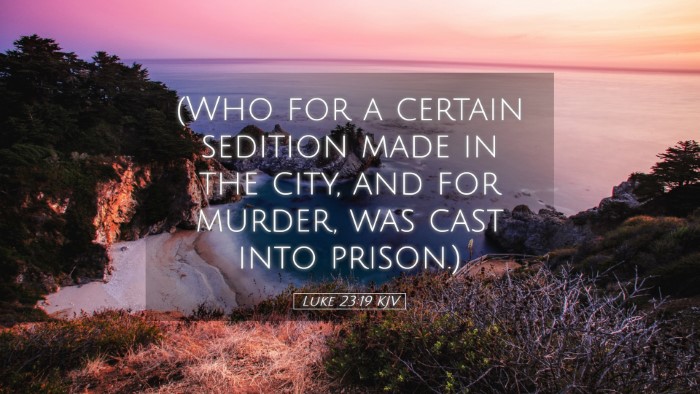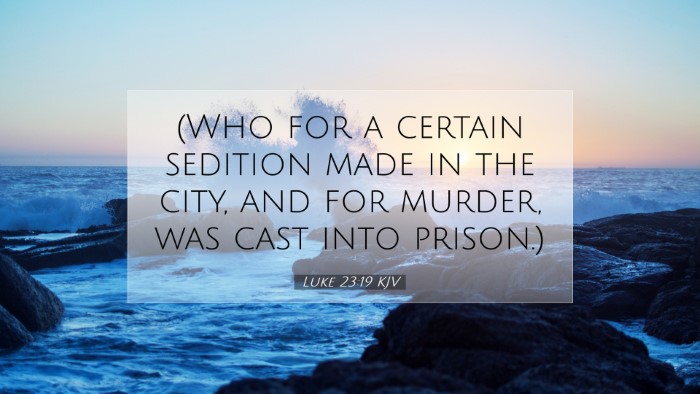Bible Commentary on Luke 23:19
Luke 23:19 states: "Who for a certain sedition made in the city, and for murder, was cast into prison." This verse refers to Barabbas, the criminal released instead of Jesus during the Passover. Below is a compilation of insights from various public domain commentaries.
Contextual Overview
Luke 23:19 is positioned within the narrative concerning the trial and crucifixion of Jesus. The mention of Barabbas serves not only as a historical detail but also as a theological reflection on the exchange between Jesus and sinners.
Insights from Matthew Henry
Matthew Henry emphasizes the injustices of the trial against Jesus, juxtaposing His innocence with Barabbas’s guilt. Henry notes:
- The Role of Barabbas: Barabbas symbolizes the sinful humanity, imprisoned by their transgressions. His release in place of Jesus articulates a profound truth about redemption.
- Divine Sovereignty: The choice of Barabbas over Jesus highlights God's sovereign plan for salvation. Just as Barabbas was freed, so too are believers set free from the bondage of sin.
Insights from Albert Barnes
Albert Barnes offers valuable insights regarding the implications of Barabbas's crime. He writes:
- Understanding Sedition: Barnes explains that Barabbas’s acts of sedition reflect the political unrest and moral decay present in Jerusalem. It emphasizes the chaos of the times against the backdrop of Jesus's peace.
- Contrast of Character: The contrast between Barabbas and Jesus is stark. Barabbas committed murder, while Jesus preached love and forgiveness. The choice made by the crowd illustrates the rejection of good for evil.
Insights from Adam Clarke
Adam Clarke provides an expository perspective on the implications of this verse. He remarks:
- Fulfillment of Prophecy: Clarke highlights how the release of Barabbas fulfills prophetic scripture, presenting a significant moment in the passion narrative that aligns with God's redemptive plan.
- Public Opinion: Clarke cites the influence of the crowd in choosing Barabbas, reflecting human fickleness and susceptibility to mob mentality, which remains relevant to contemporary discussions about human nature.
Theological Reflections
This verse provides rich theological insights for pastors, students, theologians, and Bible scholars. It serves as a powerful reminder of the cost of sin and the grace of God. Key reflections include:
- Substitutionary Atonement: The choice of Barabbas signifies the principle of substitution, allowing readers to glean a deeper understanding of how Jesus takes the place of the guilty.
- The Nature of Grace: Barabbas's undeserved freedom illustrates grace, the unmerited favor of God, which offers hope to all sinners.
- Moral Choices: The decision made by the crowd prompts believers to consider their own choices: do they choose Barabbas (the world) or Christ?
Conclusion
Luke 23:19, while a seemingly simple verse, encapsulates profound truths about justice, grace, and the nature of humanity. The commentaries by Matthew Henry, Albert Barnes, and Adam Clarke collectively illuminate key aspects of this verse, inviting deeper reflection on the themes of sin and salvation. As believers grapple with the implications of this passage, it challenges them to embrace their own redemption through Christ, the innocent Lamb who bears the sins of the world.


